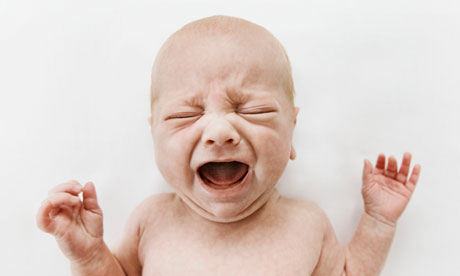
Is letting your baby cry itself to sleep at night cruel and unnatural or no big deal? Almost nothing arouses as many polarised opinions in parents. Last week a study from Philadelphia University was reported by the Daily Mail as advising mothers to let babies 'self-soothe'. In fact it really documented the natural development of sleep patterns in more than 1,000 babies from the ages of six to 36 months.
They found that "signalling" (crying) on waking up at night has a developmental course, with most babies waking once or twice a week by the age of six months. At the age of three, just 6% of children woke every night. The authors of the study discussed how self-soothing might work – but they didn't research it. So do you wait it out or use sleep training to get some rest yourself as soon as possible?
The solution
I have five children, and one was sleep-trained by my husband while I went out – guess which child nodded off most easily each night? The others all learned to sleep just fine, but I did have to spend a year or so dashing in at the first whimper. It's a very personal decision.
Babies under six months should not be left to cry because they may be ill or need feeding, and at that age they are too young to respond to behavioural training anyway. Controlled crying (where your baby is left to cry for longer each night, although you go and pat them between sobs), does not have a strong evidence base for how best to do it, how well it works and if it causes any lasting damage. Some experts worry that stressed babies produce more cortisol, a hormone that could harm the developing brain, but there is no evidence for that either.
An Australian study published last year of 328 children at seven months with sleep problems compared behavioural techniques, such as controlled crying and camping out (where parents stay in the room and comfort their baby but move their chair further away each night until it is out of the room), with general advice, such as giving your baby a night-time winding down routine.
The study found that at the age of six, the children who has been sleep-trained were as mentally well-adjusted as those who hadn't been. But the study didn't differentiate between the two training techniques – camping out is arguably less stressful for the baby – and a third of the participants dropped out.
A 2002 BMJ study of 156 mothers of babies between six and 12 months showed that babies who underwent controlled crying for two months slept better, according to their mothers. However, when the study finished after four months, the sleep-trained babies slept no better than those who hadn't been trained, suggesting that time sorts it out for most babies.

